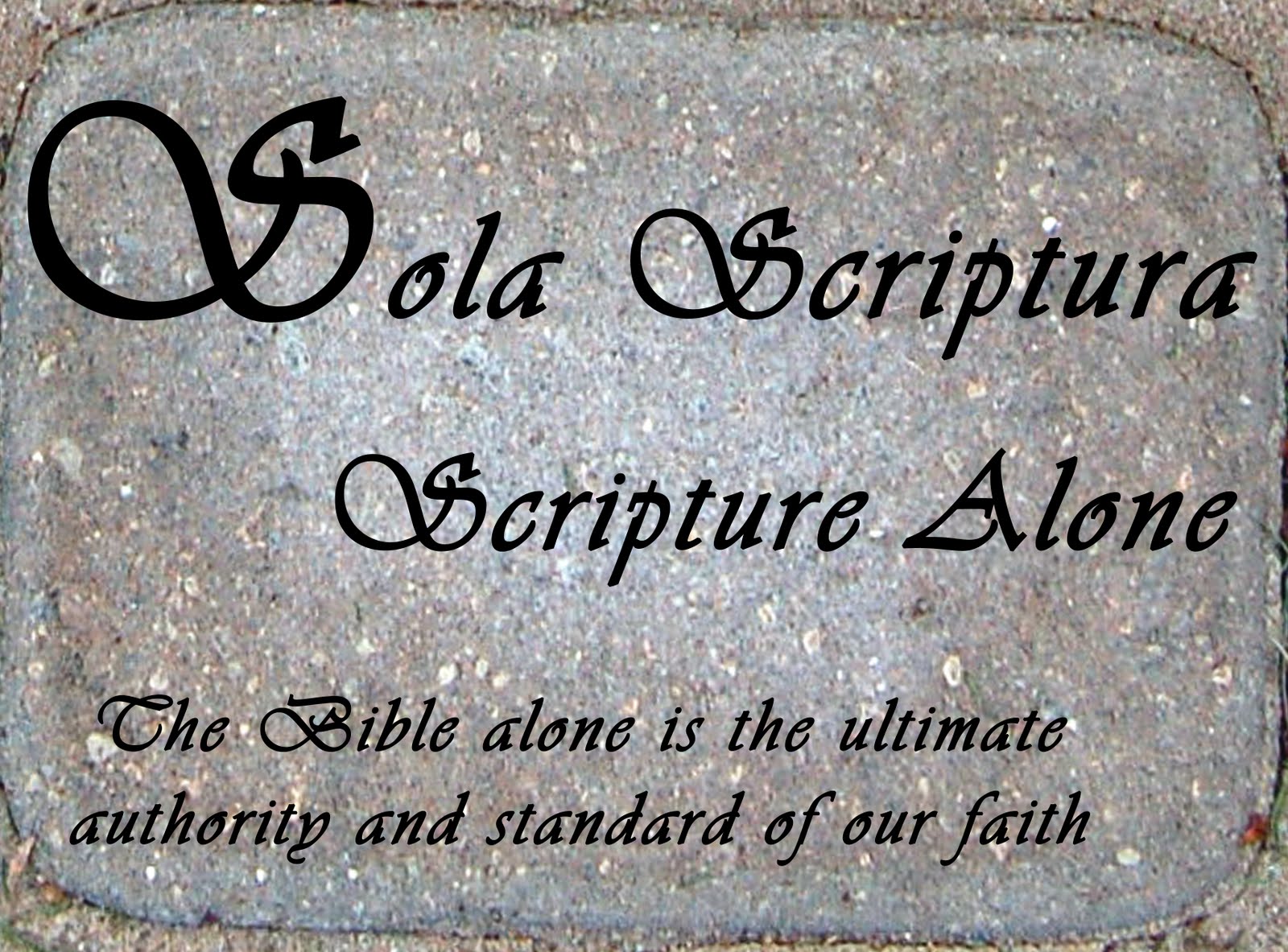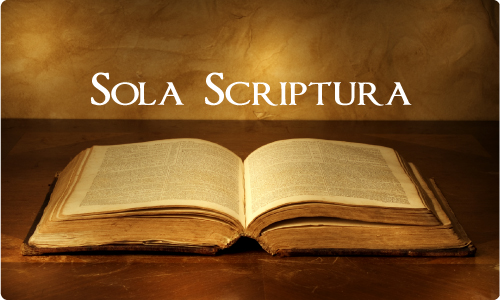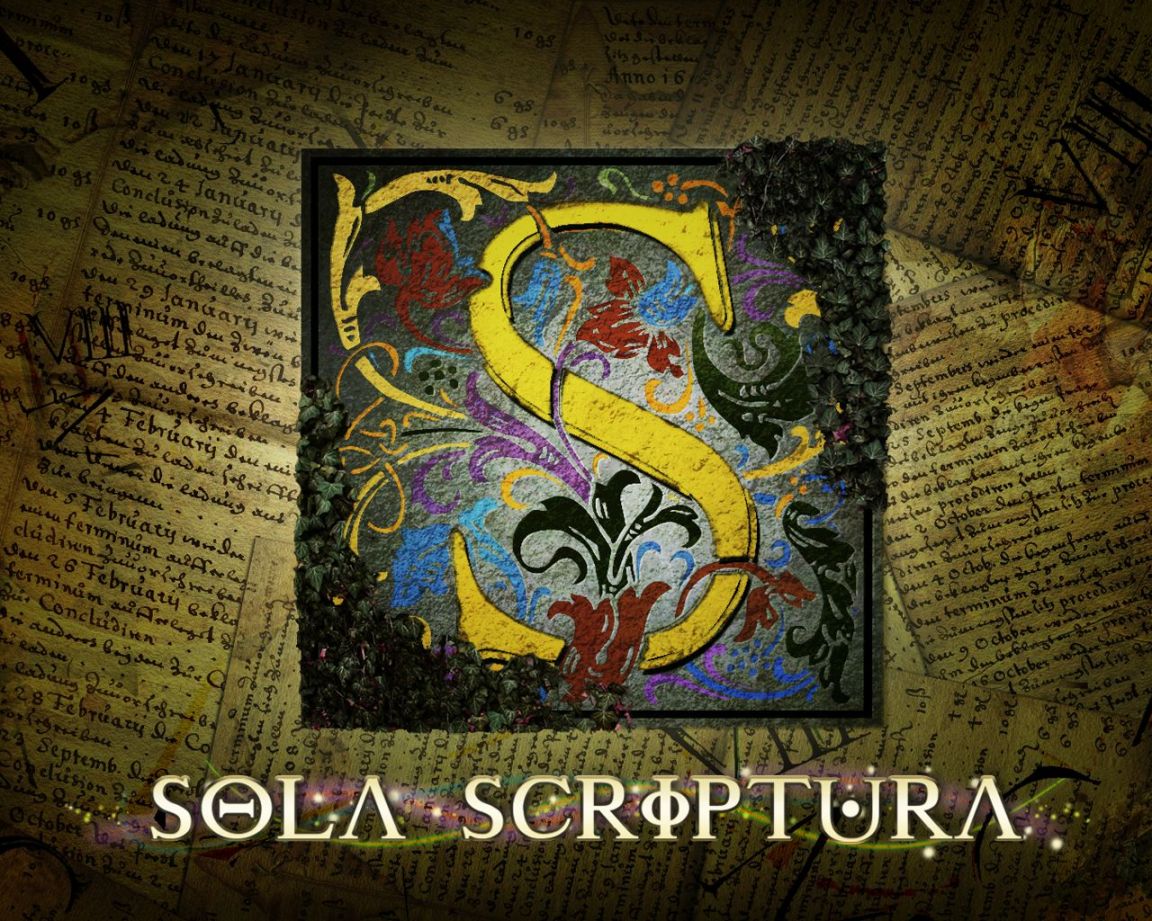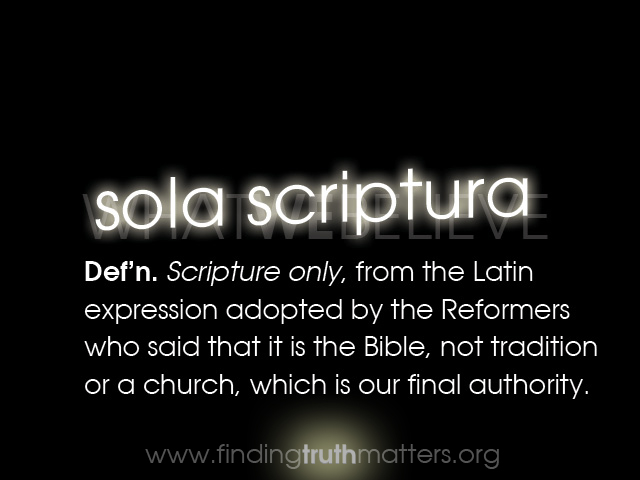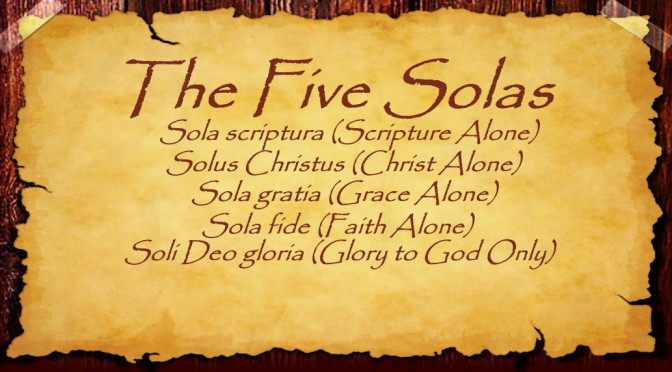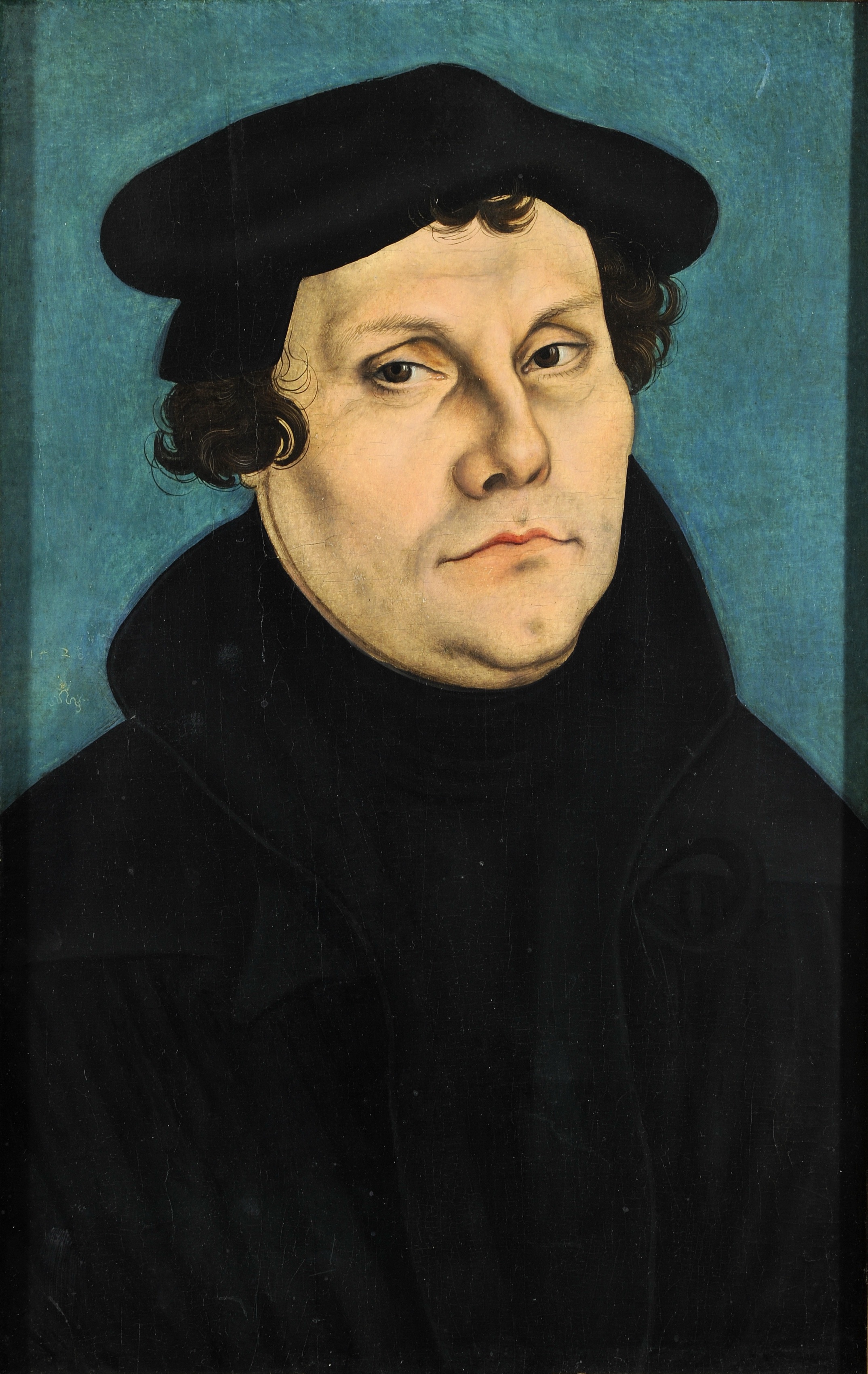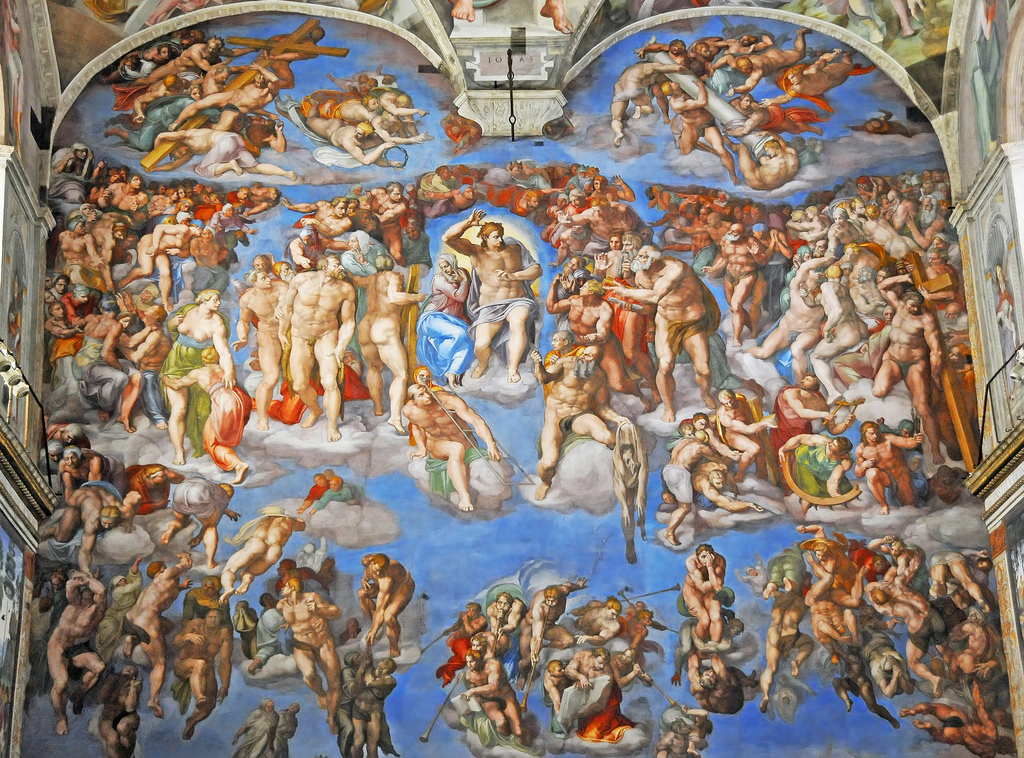
-by Joel Peters
“Biblical scholars tell us that the last book of the New Testament was not written until the end of the 1st century A.D., that is, until around the year 100 A.D. (9) This fact would leave roughly a 65-year gap between Our Lord’s Ascension into Heaven and the completion of the Bible as we know it. The question that begs to be asked, therefore, is this: “Who or what served as the final, infallible authority during that time?”
If the Protestant doctrine of Sola Scriptura were true, then since the Church existed for a time without the entire written Word of God, there would have been situations and doctrinal issues which could not have been resolved with finality until all of the New Testament books were complete. The ship would have been left without a rudder, so to speak, at least for a time. But this goes contrary to the statements and promises that Our Lord made about His Church – particularly, “behold I am with you all days, even to the consummation of the world” (Matt. 28:20) – not to mention that He told His disciples: “I will not leave you orphans.” (John 14:18).
This issue is of particular importance, as the first several decades of the Church’s existence were tumultuous. Persecutions had already begun, believers were being martyred, the new Faith was struggling to grow, and some false teachings had already appeared (cf. Galatians 1:6-9). If the Bible were the Christian’s only rule of faith, and since the Bible was not fully written – much less settled in terms of its canon – until 65 years after Christ’s Ascension, how did the early Church possibly deal with doctrinal questions without an authority on how to proceed?
Now the Protestant may be tempted to offer two possible responses: 1) that the Apostles were temporarily the final authority while the New Testament was being written, and 2) that the Holy Spirit was given to the Church and that His direct guidance is what bridged the time gap between Our Lord’s Ascension and the completion of the New Testament.
Regarding the first response, it is true that Jesus Christ invested the Apostles with His authority; however, the Bible nowhere indicates that this authority’s active role within the Church would cease with the death of the last Apostle. Quite the contrary, the Bible record is quite clear in that a) it nowhere says that once the last Apostle dies, the written form of God’s Word will become the final authority; and b) the Apostles clearly chose successors who, in turn, possessed the same authority to “bind and loose.” This is shown in the election of Matthias as a replacement for Judas Iscariot (Cf. Acts 1:15-26) and in St. Paul’s passing on his Apostolic Authority to Timothy and Titus (cf. 2 Timothy 1:6, and Titus 1:5). If anything, a Protestant only gives credence to the Catholic teaching by insisting on the authority of the Apostles.
Regarding the second response – that the Holy Spirit’s direct guidance bridged the time gap – the problem with such a position is that the direct guidance of the Holy Spirit Himself is an extra-Biblical (That is, “outside of the Bible”) source of authority. Naturally the Bible speaks very clearly of the Holy Spirit’s presence among the believers and His role in teaching the disciples “all truth,” but if the direct guidance of the Holy Spirit were, in fact, the ultimate authority during those 65 years, then the history of the Church would have known two successive ultimate authorities: first the direct guidance of the Holy Spirit, with this guidance then being replaced by the Scriptures, which would have become sola, or the “only” ultimate authority. And if this situation of an extra-Biblical ultimate authority is permissible from a Protestant perspective, does this not open the door to the Catholic position, which says that the teaching authority of the Church is the direct ultimate authority – deriving her authority from Christ and her teaching from Scripture and Tradition, guided by the Holy Spirit.
The Holy Spirit was given to the Church by Jesus Christ, and it is exactly this same Spirit who protects the Church’s visible head, the Pope, and the teaching authority of the Church by never permitting him or it to lapse into error. (9a)
The Catholic believes that Christ indeed did give the Holy Spirit to the Church and that the Holy Spirit has always been present in the Church, teaching it all truth (John 16:13) and continually safeguarding its doctrinal integrity, particularly through the office of the Pope. Thus the Gospel would still have been preached – authoritatively and infallibly – even if not a single verse of the New Testament had ever been written.”
Love,
Matthew
(9) There are some Biblical scholars who maintain that 2 Peter was actually the last New Testament book written, dating it sometime in the earlier part of the 2nd century. Since there is not a consensus among scholars that this date is accurate, it is sufficient for our purposes here to accept the generally held view that all of the New testament books were complete with the composition of Revelation.
(9a) -from http://www.catholic.com/tracts/papal-infallibility
“…Of course, infallibility does not include a guarantee that any particular pope won’t “neglect” to teach the truth, or that he will be sinless, or that mere disciplinary decisions will be intelligently made. It would be nice if he were omniscient or impeccable, but his not being so will fail to bring about the destruction of the Church.
But he must be able to teach rightly, since instruction for the sake of salvation is a primary function of the Church. For men to be saved, they must know what is to be believed. They must have a perfectly steady rock to build upon and to trust as the source of solemn Christian teaching. And, Catholics have confidence in this NOT because it is necessarily ONLY Church teaching, and since the Church was founded and commissioned by Jesus Christ, but also because it was directly promised to us, His Church, by Jesus Christ, God Incarnate Himself, Jn 14:26, et al. And that’s why Church and then papal infallibility exists in matters of teaching Faith and Morals…” (Ed. keep in mind you practicalists, for two thousand years enemies of His Church have been trying to shoot holes in this one. They are all dead and long forgotten. His Church remains. Chew on that, and ask yourself why? St Thomas, the Apostle, pray for us!!!) 🙂


